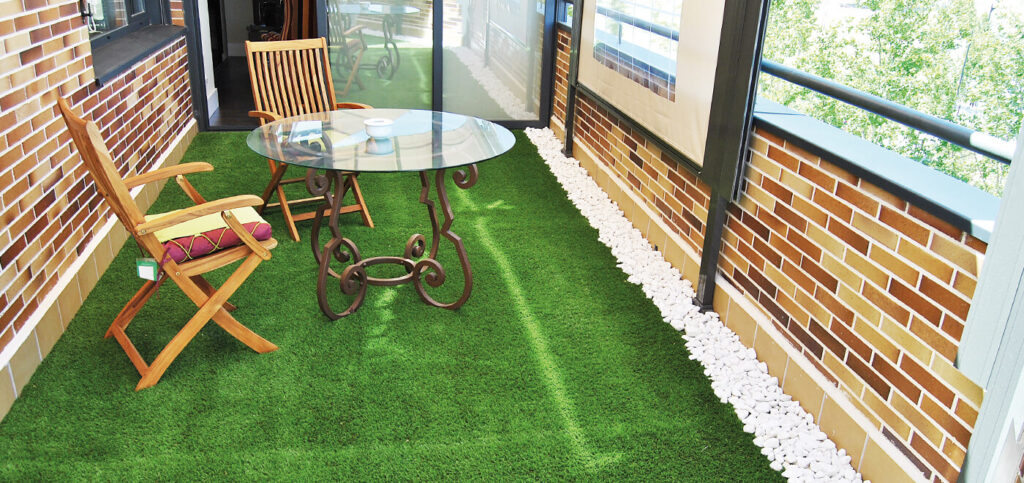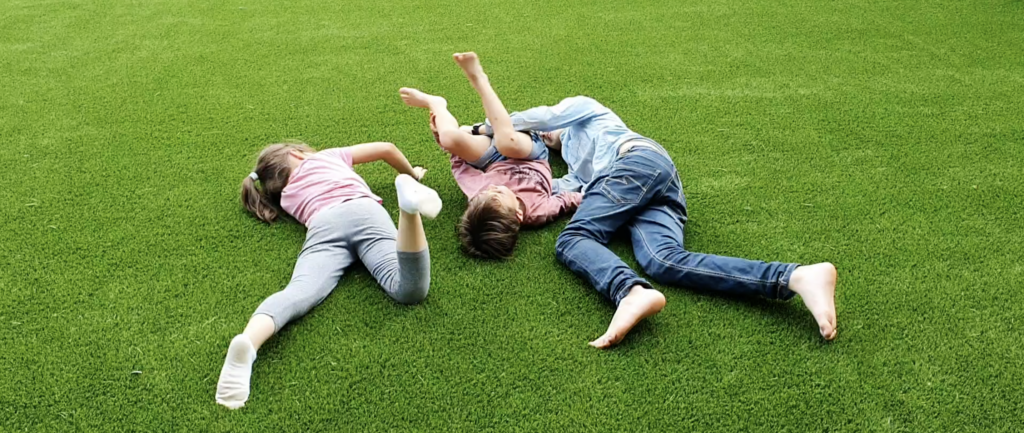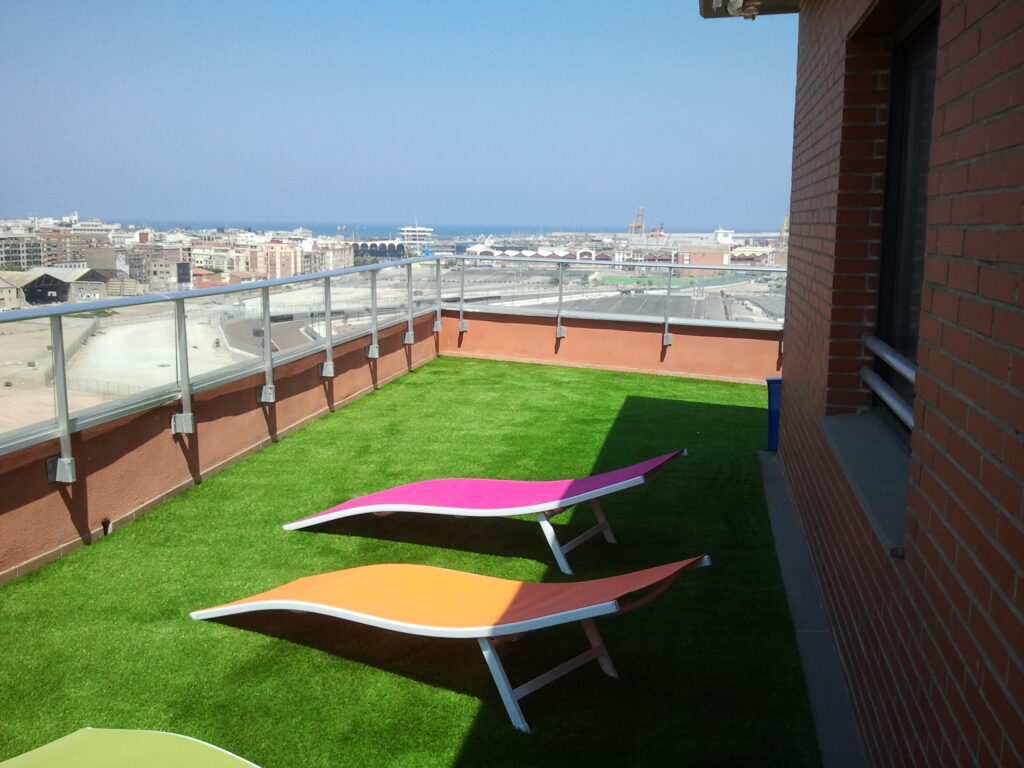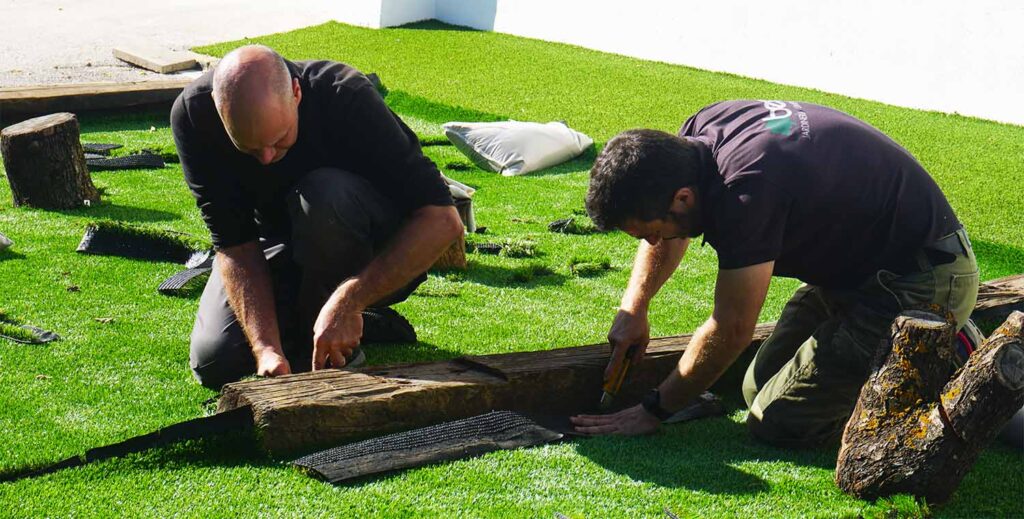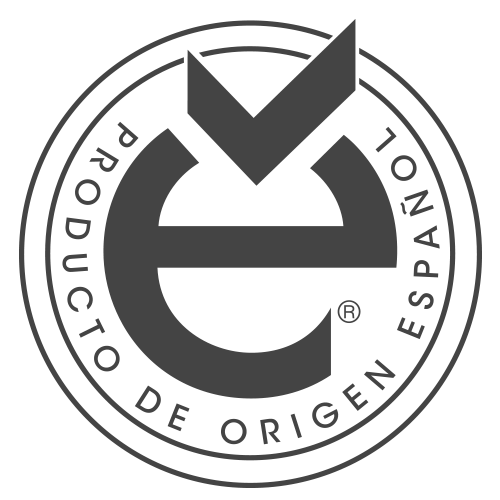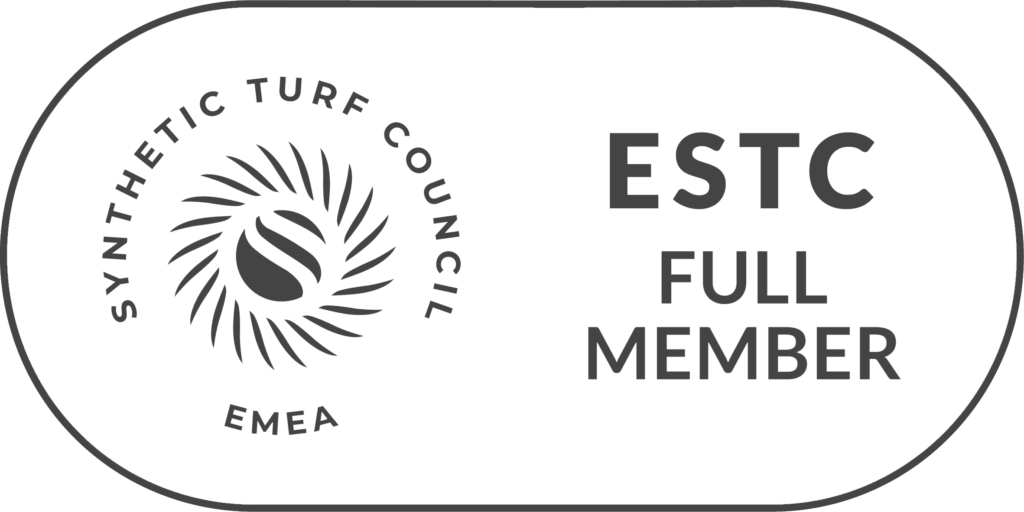Are you thinking about installing artificial turf? Do you want to do it yourself? In today’s post we tell you how to do it step by step.
The first indication, and this is not to discourage, is that although it may seem easy, laying artificial turf has its difficulties and we must be organized and take into account all the particularities of the space to obtain a perfect result.
We recommend that artificial turf is installed by a professional, this will save time and money. We leave you a link to the article why it is better to hire a professional in artificial turf.
Why artificial turf?
Long-lasting beauty and esthetics
The research and application of new technologies has allowed the quality and attractiveness of artificial grass to improve. In Albergrass you will find great products with the appearance and greenery of natural grass. You have many shades to choose from. We have different chromatic designs so you can give a very personal touch to your garden.
Today’s artificial turf is resistant to adverse conditions such as heat, frost, torrential rains, UV rays. If it is a quality product, its average durability is about 8 years. The higher the quality, the longer the durability.
A cost-effective and environmentally friendly solution
If we understand the installation of artificial turf as an investment, we see that its cost is very economical. Not only do you save water, you also avoid maintenance costs, you don’t need a gardener or waste your time to keep it in perfect condition.
In addition, laying artificial turf is betting on a solution that respects health and the environment. It does not produce allergies and does not use heavy metals or harmful substances. Nor does it require pesticides or chemical products to preserve it.
To all of the above we must add the great savings in water and CO2 emissions that you stop producing by not needing the use of machinery to cut it. Your neighbors will thank you for not waking them up with the mower.
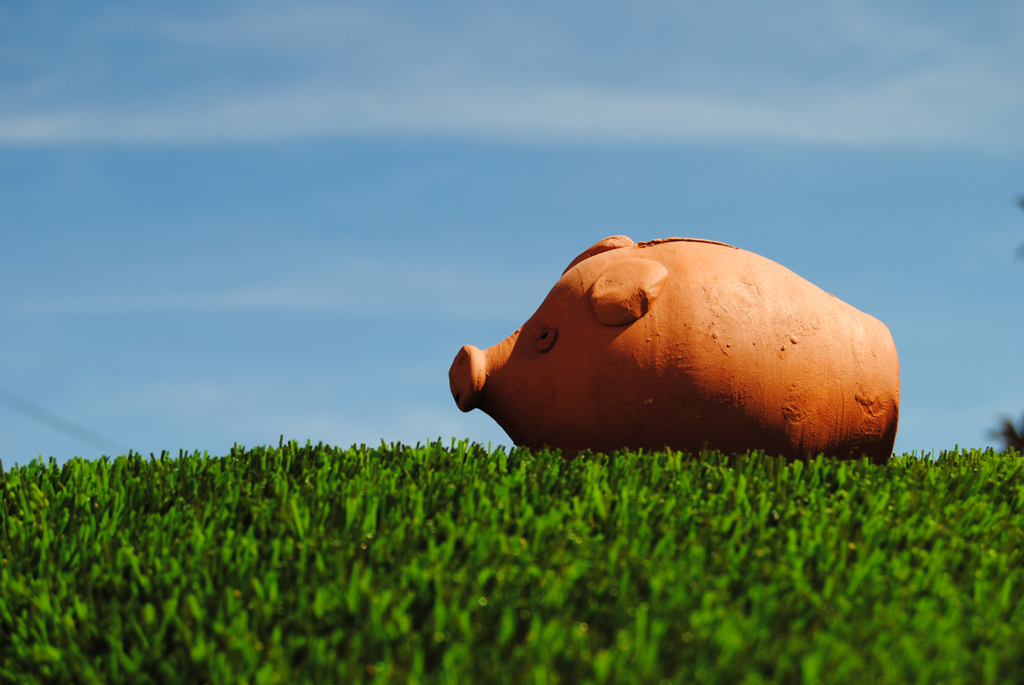
Clean and mud free
The perforations included in a quality artificial turf allow water drainage to be fast and effective. This prevents the appearance of mud, so you can walk on it without fear of getting mud on your shoes.
It also doesn’t stain your clothes green like natural grass does. You can let your kids enjoy it, without fear of getting hard-to-remove stains on your clothes.
Your pets love it
In addition to your children, if you have pets, fun is guaranteed. Artificial turf is free of parasites that can affect their health. And it does not suffer or spoil because they are stepping or doing their needs on it.
It doesn't take up your time
Enjoy that your artificial grass garden is as good as new every morning does not require major maintenance work. As we have said, there is no need to mow it or water it.
It only needs to be brushed from time to time to recover its beauty and verticality and to be sprayed with water from time to time to remove any dust it may have, as well as to provide freshness.

We tell you step by step how to do it
Step 1: Organization
When it comes to laying artificial turf, organization makes the task much easier. Prepare all the materials you will need: rolls of artificial turf, tools, silica sand, binding tape, glue, paper, pencil…
It will be very helpful to make a small sketch or map of the space you want to cover with artificial turf and draw all the elements or objects that delimit it. This way you will see more graphically how to undertake the installation of artificial grass.
Measure well the surface to be covered to know how many rolls of artificial turf you need to buy.
Step 2: surface preparation
Once you have everything organized and ready to start the installation, the next step is to leave the surface on which you are going to install the artificial turf in perfect conditions for cleaning and use.
Depending on the type of soil on which you put the artificial turf, the way to prepare the ground is different. We tell you how to do it depending on whether the surface is smooth or rough.
Artificial turf on concrete, terrazzo, smooth surfaces
The first thing to do is to clean the surface so that there are no impurities or traces of dirt. It should be as clean and smooth as possible, so that the tread will be smoother.
If there are loose stones, they will be noticed when laying the artificial turf and once installed, they will be more difficult to remove. Once cleaned, it is advisable to cover the concrete with an elastic and draining underlayment, such as our CareTech 10, in order to provide a smoother ride.

Artificial turf on earth or rough surfaces
Artificial turf must be installed on a hard and stable surface, so in case of soft and vegetated ground, before laying the artificial turf, you must kill the existing vegetation and remove the topsoil to prevent it from coming back.
A layer of gravel (gravel mixed with sand) must then be placed, compacted and smoothed with a vibrating tray.
Then place weed control netting to protect the surface and prevent weed growth.
Don't forget slope and drainage
It is necessary to ensure that the surface has the necessary measures and slopes to drain water in case of rain. If there is a drain, you must mark its position to leave an opening in the lawn that will allow us to access it in case of need.
On concrete surfaces, we recommend installing an elastic and draining underlayment on top of clean concrete or terrazzo. It drains water and provides a softer footing.

Step 3: Laying the artificial turf
Once you have the ground ready, it is time to spread the rolls of sod over the area to be covered.
It should be noted that the rolls of artificial turf are 2 meters wide. The artificial turf pile is flawed in the rolling direction. This implies that all the pieces must be laid in the same direction so that the color of the turf is uniform and not noticeable together.
With the drawing you have made you will get a more concrete idea of how to make the most of the artificial turf rolls.
Albergrass’ advice is to leave about 5 cm extra at each end for a better fit. Adjust the perimeter once all the pieces are in place and the entire surface is covered.
Use scissors or a box cutter to cut the pieces of grass that protrude or to adjust them correctly to possible obstacles on the ground (columns, railings, planters, steps…).
Do not forget to maintain the drains in the ground so that the water drains properly and does not puddle when it rains.
Step 4: gluing and fixing the artificial turf
The next step is to join all the pieces one by one. This can be done using PU glue or self-adhesive tape. For application, open the joints on both sides and spread the joining strip that includes the lawn pieces. Spread the glue over the strip, carefully and without overdoing it. To spread the glue it is very useful to use a toothed spatula. Once the glue has been spread, close the joints carefully so as not to stain the lawn.
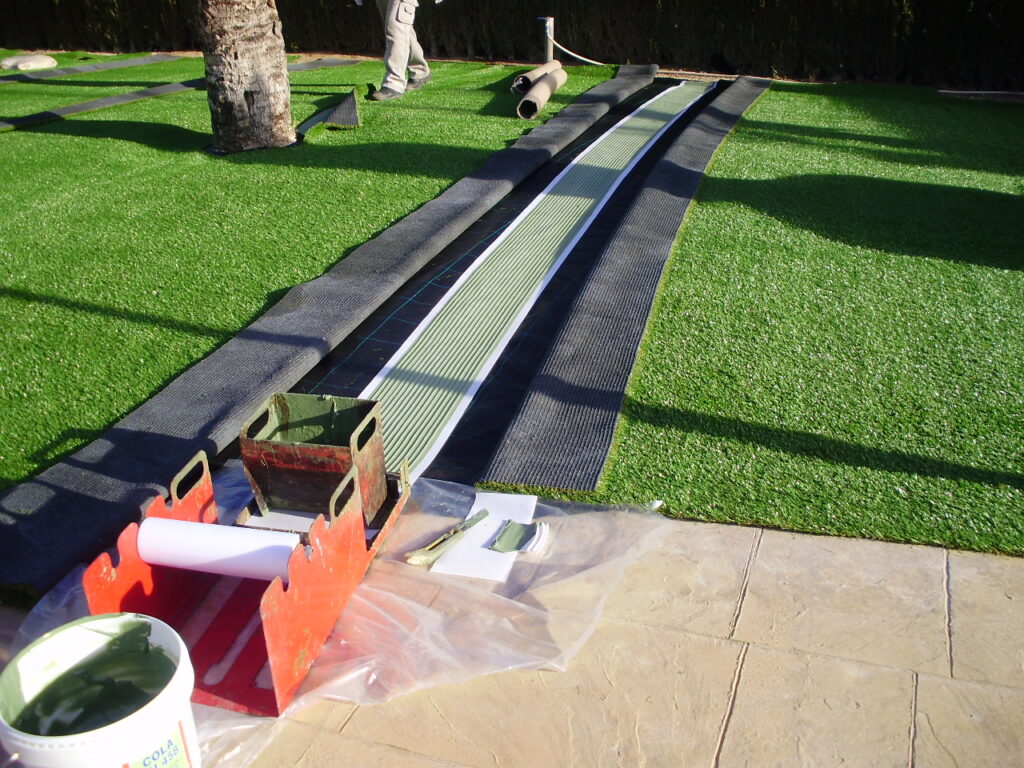
Step 5: Silica sand and brushing
Although spreading silica sand is not a mandatory step, it is recommended. The reason is that it will add great advantages as an infill for artificial turf.
This material allows us to enjoy artificial turf as new for much longer.
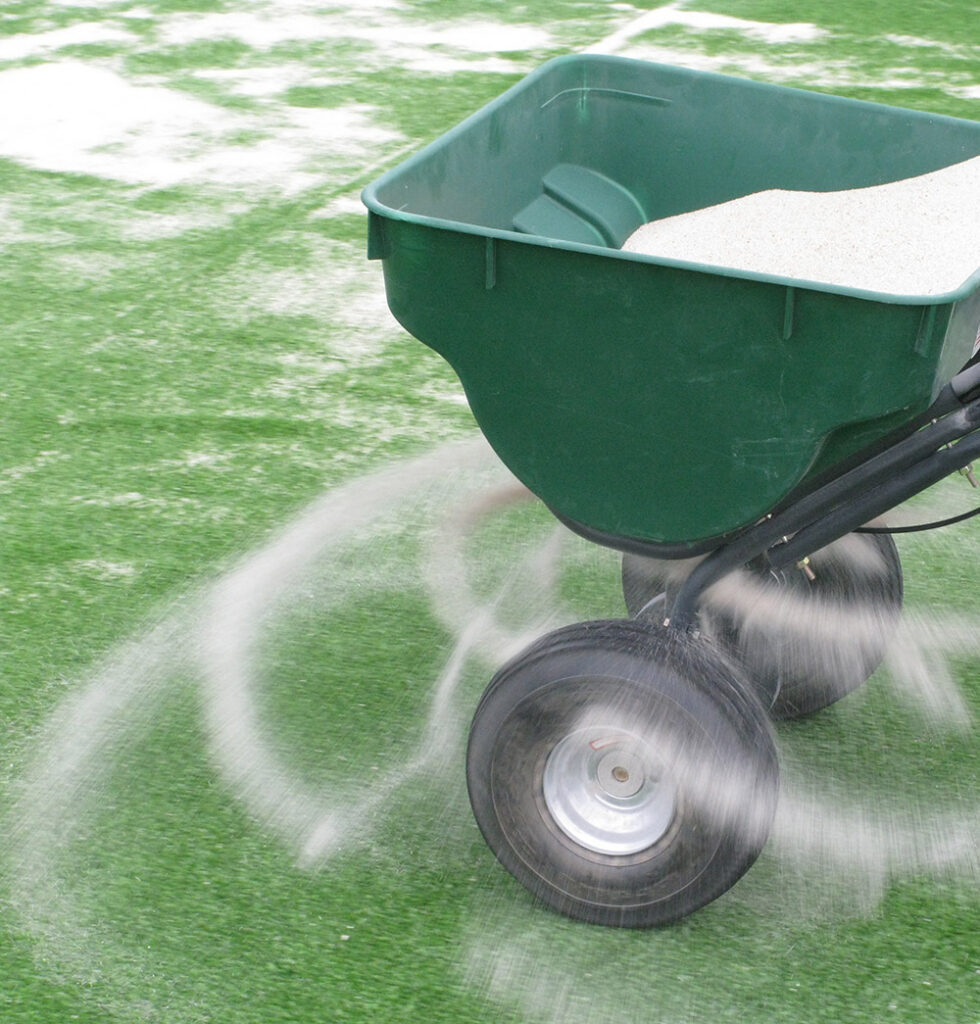
What is the contribution of silica sand as infill for artificial turf?
Silica sand makes it easier to fix the artificial grass to the ground. By spreading it on the lawn, we facilitate its adherence to the ground, thanks to the weight of the sand. As a result, it gives consistency to the turf.
Although artificial turf drains water very well, in areas where it rains a lot or torrentially, if we add silica sand the drainage improves.
With silica sand we also provide greater beauty and verticality. And a great sensation of freshness, since if we spray the artificial grass with water on days of intense heat, the freshness lasts longer if we have spread silica sand, since it retains moisture longer.
Another of its advantages is that it offers greater safety. Although Albergrass artificial turf has fireproof properties, self-extinguishing fire, if we add silica sand this property is accentuated.
Tips for silica sand backfilling
Our recommendation is to spread 4 to 5 kg of silica sand per square meter of artificial turf.
In Albergrass we recommend the use of silica sand for both monofilament and textured artificial grass. With it we get a more natural look and greater durability of the lawn.
Once spread, it is advisable to brush the lawn so that the sand is evenly distributed and the verticality of the grass is achieved.
And with this brushing, we finish the work of laying artificial turf.
In Albergrass we offer you a consulting service
If after reading this article on how to lay artificial turf you have any doubts. Don’t worry. In Albergrass we help you with everything you need. In addition we advise you on what is the best type and quality to meet your needs.


